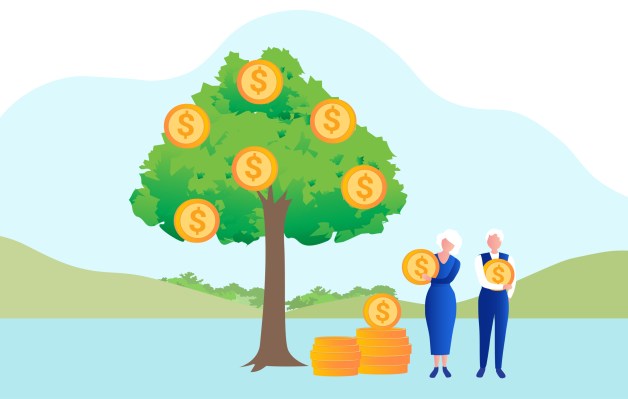My grandpa will turn 93 this November. He’s my last living grandparent, and while he hasn’t made it this far without any health complications, he’s largely thriving and still able to maintain a garden, brew beer and try new baking projects.
My family has long attributed his longevity to how active he’s remained. He still takes walks, and he maintained his lawn until just a few years ago. He’s a living example of how important exercise is for those who are aging — hopefully mixed with some good genes, for my sake!
Bold is built on the same premise. The Los Angeles–based startup created a digital at-home fitness platform for aging adults that creates personalized exercise routines to help with common ailments like arthritis and balance issues. The startup announced a $17 million Series A round on Tuesday, led by Rethink Impact with participation from Primetime Partners, Andreessen Horowitz and Khosla Ventures, among others. This brings the startup’s total funding to $27 million.
Amanda Rees, the co-founder and CEO, came up with the idea for Bold after working as a caregiver for her grandmother, starting in her 20s. Rees said that her grandmother was prone to falls and also had diagnosed cancer and dementia. The experience really opened Rees’ eyes to some of the shortcomings older adults face.
To improve her grandmother’s quality of life, she started digging into the research around exercise and aging. She discovered science-backed exercises her grandmother could do to improve her balance, but she wasn’t sure what would be the right class or program for her. Instead of trusting her grandmother’s exercise to others, Rees got certified in tai chi, which is good for helping prevent falls, and taught her grandmother herself.
“I really felt like there was a lot to be desired around what we can do to keep her from falling,” Rees said. “Quality of life is what you think and want to believe is the North Star of healthcare but it felt somewhat neglected.”
Rees and her husband decided to fill that gap with Bold. The company has since partnered with value-based healthcare providers, including Ochsner Health, One Pass, and Renew Active, among others, to ensure it can be a resource to those who need it most.
This company gets me excited for a number of reasons. One, it’s building a product that the consumers who need it the most can actually afford. Startups sometimes build services — often in healthcare — that are meant to solve a problem but slap a price tag on it that’s so high that those who need the service the most aren’t even able to access it. Those companies have always confused me, because while sure, I get it, capitalism, but why bother building if people can’t use it? How does that translate into a steadily growing business?
So Rees purposefully partnering with value-based entities and Medicare to ensure that anyone who needs it has free access is both refreshing and quite frankly a vote of confidence in the long-term health of the business.
Bold also signals that elder tech may be expanding. The category didn’t really have a name five years ago but has since gained rapid momentum — especially after COVID highlighted many of the issues plaguing older adults. I haven’t been able to find any comprehensive funding stats, but the anecdotal evidence is clear: Since 2020, two venture firms, Primetime Partners and Longevitytech.fund, launched to solely focus on the space. Numerous young startups have followed, including Duos, ConnectCareHero and Considra Care, among others.
But so far it seems like a majority of tech has centered around just a few issues: caregiving, healthcare logistics and combating loneliness. While these are all important areas, so many startups in this sector are focused on being reactive to a person’s situation. Bold takes a more proactive approach to help prevent health problems as opposed to solving existing issues.
Because having a solution to home care after a senior falls is great, but having a system to prevent the fall from happening is much better.
This is a great sign that the category is starting to expand beyond its initial roots. The more startups looking to mitigate issues older adults face before they start, the happier lives these folks get to live, which gives us all something to look forward to.
“We are very proud to be a company that will talk about aging,” Rees said. “We aren’t saying let’s reverse aging. We are all aging. How do we build so that everyone has the best aging experience possible?”
